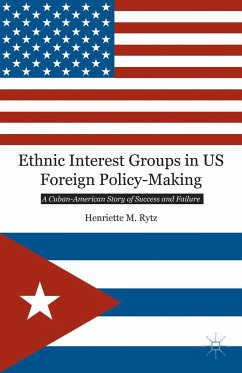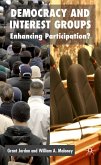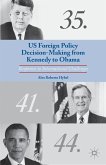This book comprises the first systematic study on the impact of ethnic interest groups on US foreign policy, using the case study of how the Cuban?American National Foundation (CANF) influenced the outcome of three different legislatives debates that directly affected US Cuba policy.
"This is an excellent piece of scholarship that is interesting, provocative, empirical, theoretically grounded, and exceptionally well written." Patrick J. Haney, Professor, Miami University, USA
"Despite all the hype about the alleged influence of, say, the 'Jewish lobby' or of Cuban Americans on US policies toward Israel or Cuba, we know surprisingly little about the role of such ethnic interest groups in American foreign policy. Therefore, this book closes a very significant gap in the literature. Henriette Rytz argues, first, that ethnic interest groups can be analyzed in pretty much the same way as other lobby groups in US foreign policy, except that collective identities motivate the activities in this case. Second, however, even most powerful ethnic interest groups such as the Cuban Americans do not get their way all the time, but have to align their discourse with main trends in US foreign policy. In sum, this excellent and extremely well researched book systematically theorizes the variation in the impact of ethnic interest groups on US foreign policy." Thomas Risse, Professor of International Politics, Freie Universität Berlin, Germany
"Despite all the hype about the alleged influence of, say, the 'Jewish lobby' or of Cuban Americans on US policies toward Israel or Cuba, we know surprisingly little about the role of such ethnic interest groups in American foreign policy. Therefore, this book closes a very significant gap in the literature. Henriette Rytz argues, first, that ethnic interest groups can be analyzed in pretty much the same way as other lobby groups in US foreign policy, except that collective identities motivate the activities in this case. Second, however, even most powerful ethnic interest groups such as the Cuban Americans do not get their way all the time, but have to align their discourse with main trends in US foreign policy. In sum, this excellent and extremely well researched book systematically theorizes the variation in the impact of ethnic interest groups on US foreign policy." Thomas Risse, Professor of International Politics, Freie Universität Berlin, Germany








